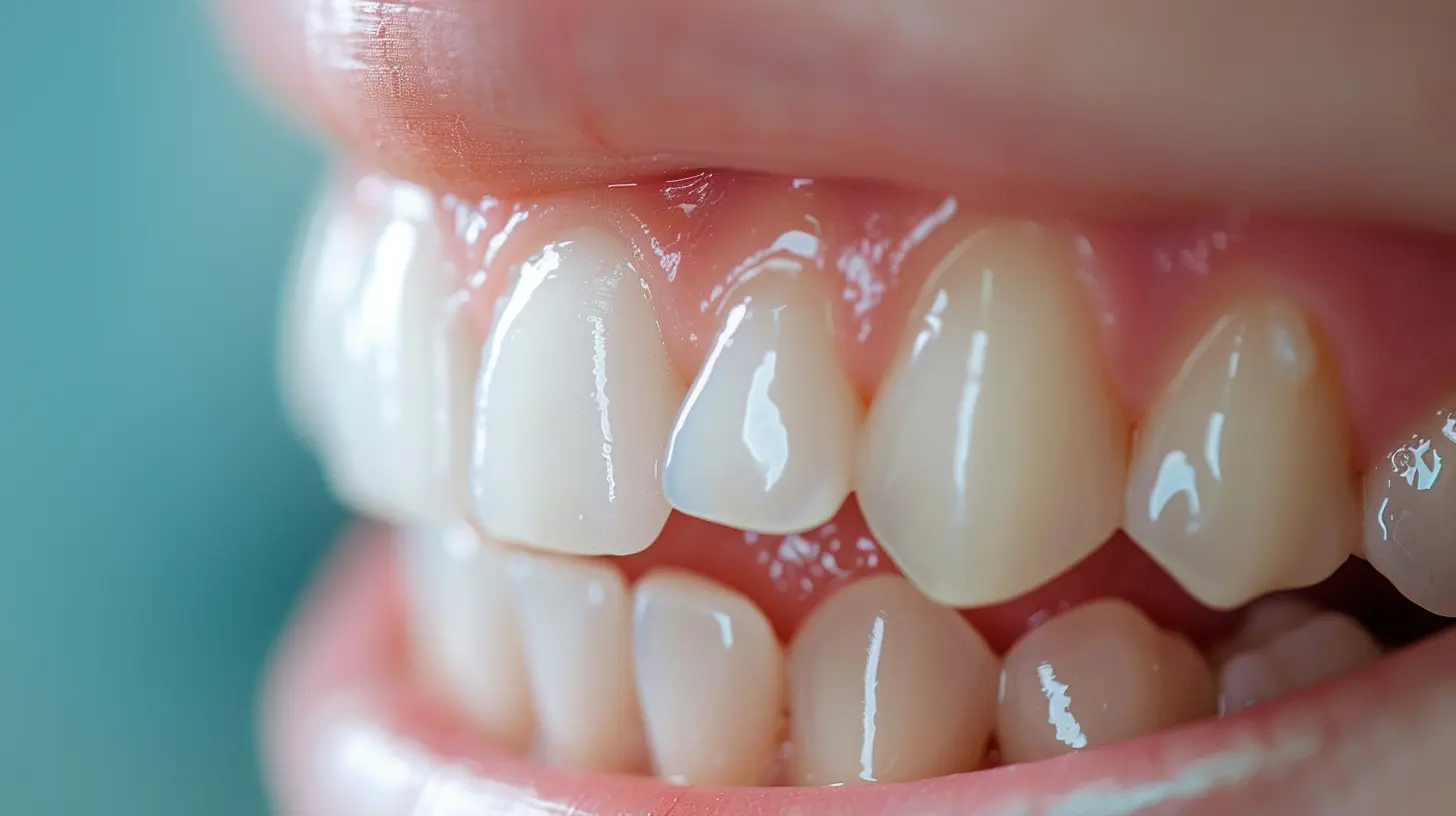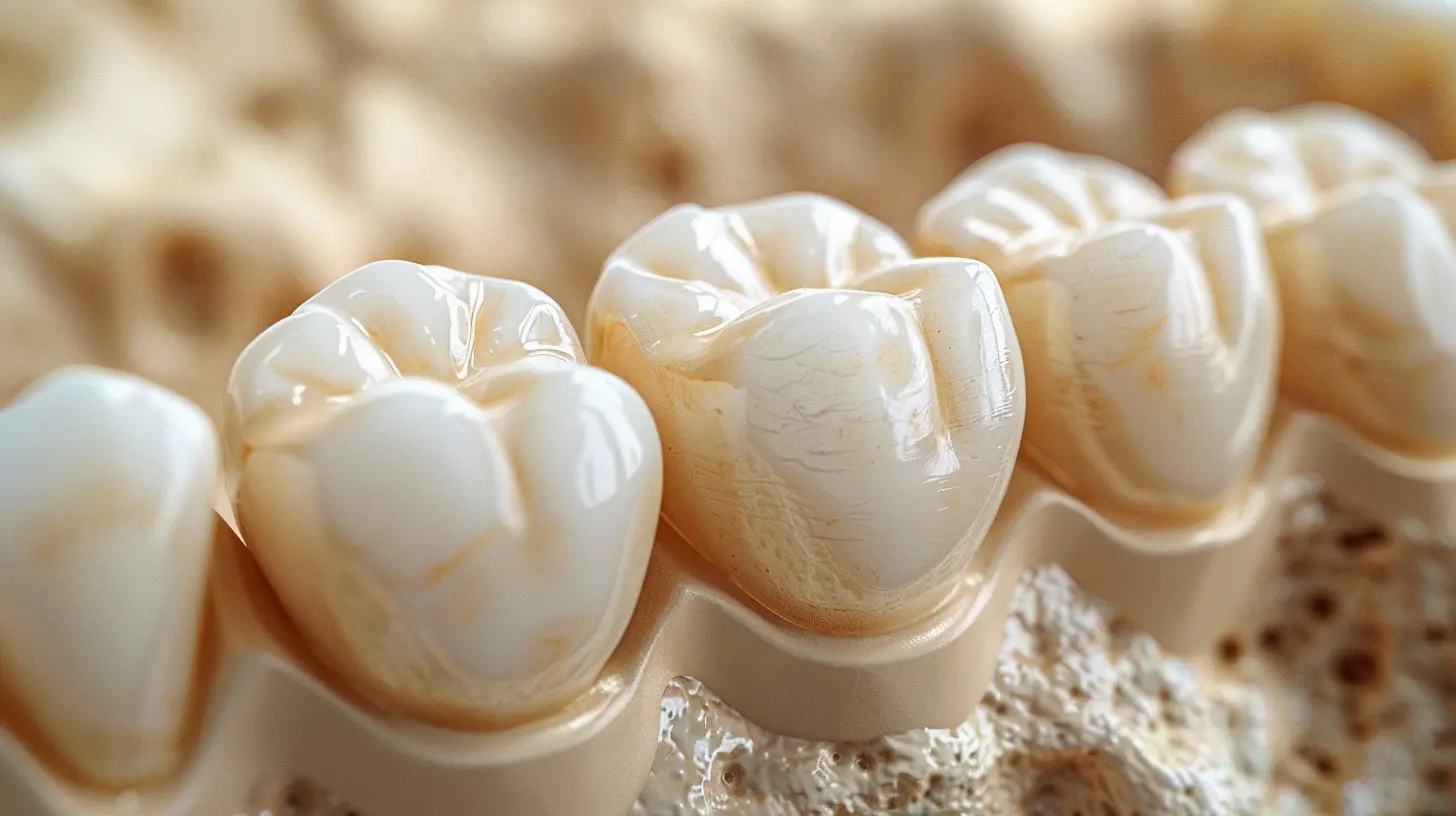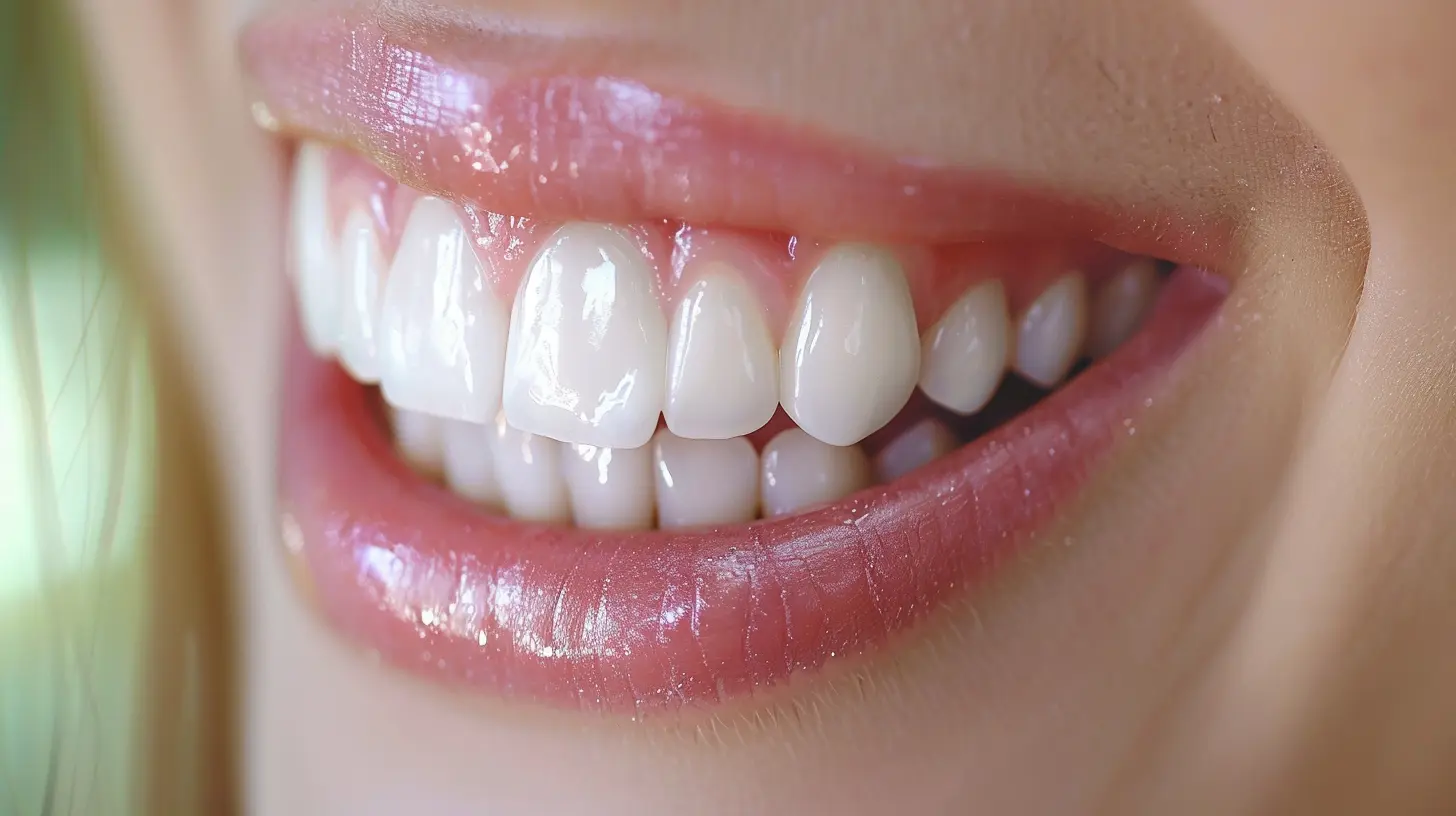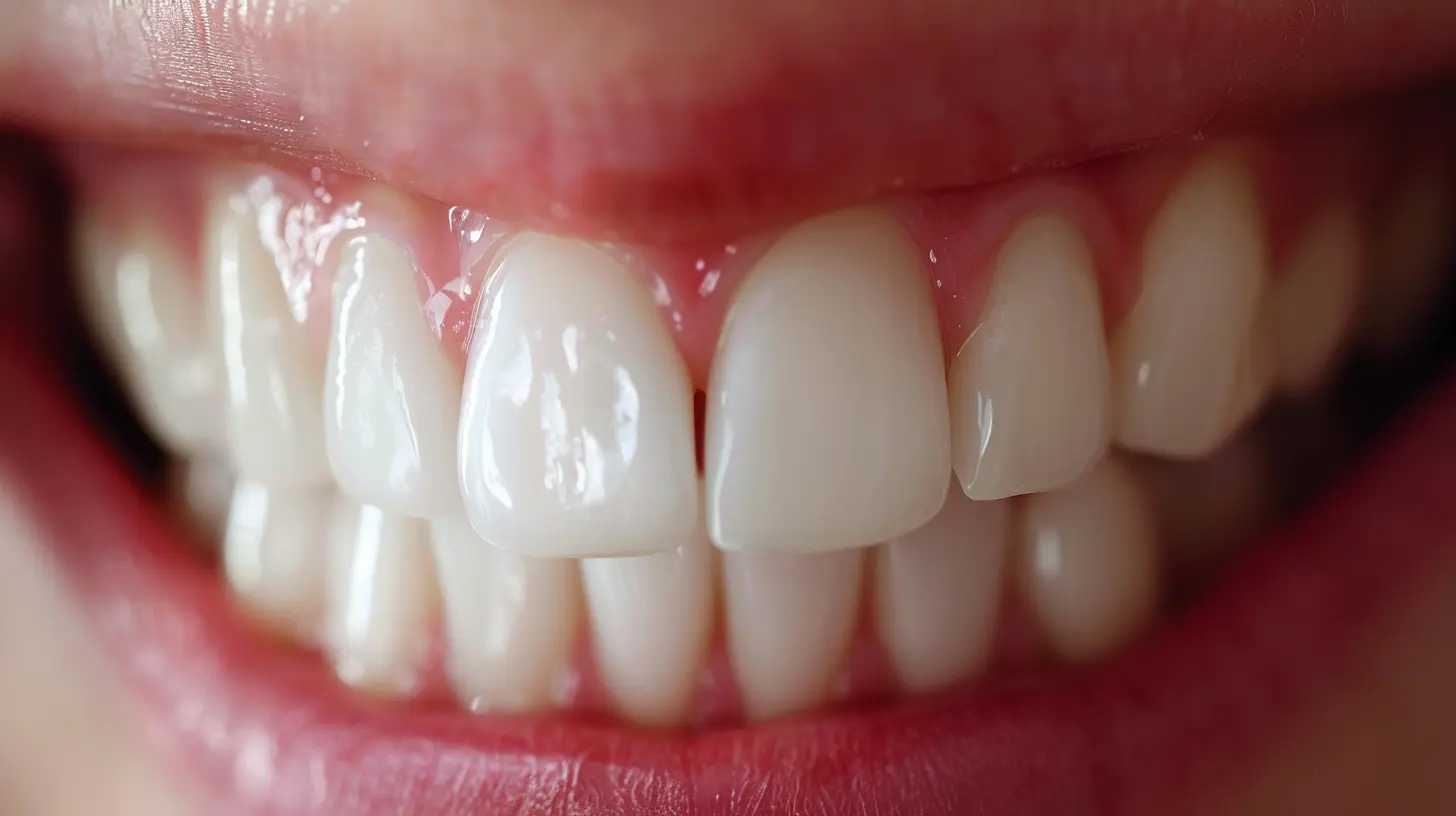What You Should Know About Enamel Erosion
11 July 2025
Have you ever noticed your teeth feeling more sensitive than usual? Maybe they look a little less white, or you experience a sharp pain when sipping your favorite iced coffee. These could be signs of enamel erosion—a common dental issue that many people overlook until it’s too late.
Your enamel is like a shield for your teeth, protecting them from daily wear and tear. But when it starts to erode, your teeth become vulnerable to cavities, sensitivity, and other dental problems. So, what causes enamel erosion, and what can you do about it? Let’s dive into everything you need to know. 
What Is Enamel and Why Does It Matter?
Enamel is the hard, outer layer of your teeth. It’s actually the hardest substance in your entire body—stronger than bone! Its job is to protect the softer inner layers of your teeth from damage, bacteria, and decay.Unlike other tissues in the body, enamel doesn’t have living cells, which means that once it’s damaged, it can’t regenerate. That’s why taking care of your enamel is crucial if you want to maintain healthy, strong teeth for life. 
Causes of Enamel Erosion
Enamel erosion doesn’t happen overnight. It’s usually the result of long-term exposure to acids, poor oral hygiene, and other lifestyle factors. Let’s break down some of the most common causes.1. Acidic Foods and Drinks
One of the biggest culprits behind enamel erosion is a diet high in acidic foods and beverages. Citrus fruits, soda, wine, and even some fruit juices can wear away your enamel over time. The acid softens the enamel, making it easier for it to be worn down.Tip: If you love your morning orange juice or occasional soda, try using a straw to minimize direct contact with your teeth!
2. Poor Oral Hygiene
Neglecting your dental hygiene can speed up enamel erosion. If you’re not brushing and flossing properly, plaque can build up on your teeth and produce acids that eat away at the enamel. On the flip side, brushing too hard or using a hard-bristled toothbrush can also wear it down over time.Tip: Use a soft-bristled toothbrush and gentle, circular motions to clean your teeth without causing damage.
3. Acid Reflux and GERD
If you suffer from acid reflux or GERD (Gastroesophageal Reflux Disease), stomach acids can make their way up into your mouth, exposing your teeth to harmful acid that weakens enamel. If left untreated, frequent acid exposure can lead to severe enamel erosion.4. Dry Mouth (Xerostomia)
Saliva is your mouth’s natural defense mechanism against acid. It helps wash away food particles and neutralizes harmful acids. If you have dry mouth—either due to medication, dehydration, or certain health conditions—you’re at a higher risk of enamel erosion.Tip: Stay hydrated and chew sugar-free gum to promote saliva production.
5. Teeth Grinding (Bruxism)
Grinding or clenching your teeth, often while sleeping, puts excessive pressure on your enamel. Over time, this can cause it to wear down, leading to sensitivity and an increased risk of cavities.Tip: If you grind your teeth at night, consider wearing a mouthguard to protect your enamel.
6. Frequent Snacking
Constantly snacking throughout the day—especially on sugary or starchy foods—creates a breeding ground for bacteria. These bacteria produce acids that strip away enamel and increase your risk of tooth decay.Tip: If you snack often, try to choose healthier options like cheese, nuts, or crunchy vegetables to help protect your teeth. 
Signs of Enamel Erosion
How do you know if your enamel is eroding? Here are some telltale signs to watch for:- Increased Tooth Sensitivity – If you suddenly feel discomfort when eating hot, cold, or sweet foods, it could mean your enamel is thinning.
- Discoloration – As enamel wears away, the yellowish dentin underneath becomes more visible, making your teeth look discolored.
- Rounded or Transparent Edges – The edges of your teeth might start to look more rounded or even slightly see-through.
- Cracks and Chips – Weakened enamel makes your teeth more prone to small cracks and chips.
- Cupping on Teeth Surfaces – Small indentations or “cups” on the surface of your teeth can be a sign of severe enamel erosion.
If you notice any of these signs, it’s a good idea to visit your dentist before things get worse. 
How to Prevent and Protect Your Enamel
While enamel can’t grow back, you can take steps to prevent further erosion and protect what’s left.1. Brush and Floss Correctly
Good oral hygiene is your first line of defense. Use a fluoride toothpaste, which helps strengthen enamel, and brush at least twice a day. Don’t forget to floss daily to remove plaque and food particles between your teeth!2. Rinse After Eating or Drinking Acidic Foods
If you consume something acidic, rinsing your mouth with water or a fluoride mouthwash can help wash away harmful acids before they do damage.3. Avoid Over-Brushing
Brushing too soon after eating acidic foods can actually cause more harm than good. It’s best to wait at least 30 minutes before brushing to allow your enamel to re-harden.4. Drink More Water
Water helps cleanse your mouth and neutralize acids naturally. Plus, if your local water supply contains fluoride, it can give your teeth an extra layer of protection.5. Use a Fluoride Treatment
Fluoride plays a key role in enamel protection. Your dentist can provide fluoride treatments, or you can use fluoride-rich toothpaste and mouthwash at home.6. Wear a Mouthguard
If you grind your teeth at night, invest in a custom mouthguard to prevent further enamel loss. Your dentist can help you find one that fits comfortably.Can Enamel Be Repaired?
Unfortunately, once enamel is gone, it’s gone for good. However, you can take steps to strengthen the remaining enamel and prevent further damage. Some dental treatments can help, including:- Fluoride Treatments – Strengthens weak areas of enamel and helps protect against cavities.
- Bonding – A resin material can be applied to cover worn-down areas and improve tooth appearance.
- Crowns or Veneers – In severe cases, a dentist may recommend crowns or veneers to restore function and aesthetics.
The best approach? Prevention! Taking care of your enamel now will save you from expensive and painful dental treatments down the road.
Final Thoughts
Your enamel is your teeth’s first line of defense, and once it’s gone, there’s no getting it back. But the good news is that with the right habits and lifestyle choices, you can protect and preserve the enamel you have.Cut back on acidic foods, maintain good oral hygiene, and visit your dentist regularly to catch any early signs of enamel erosion. Trust me—your future self (and teeth) will thank you!
all images in this post were generated using AI tools
Category:
Healthy TeethAuthor:

Jackson Mahoney
Discussion
rate this article
1 comments
Anna McCarty
This article provides essential insights into enamel erosion, highlighting its causes and preventive measures. Understanding the impact of diet and oral hygiene is crucial for maintaining dental health. A well-rounded approach to care can help protect your enamel effectively.
July 28, 2025 at 4:48 AM

Jackson Mahoney
Thank you for your thoughtful comment! I'm glad you found the insights on enamel erosion and preventive measures helpful for maintaining dental health.


